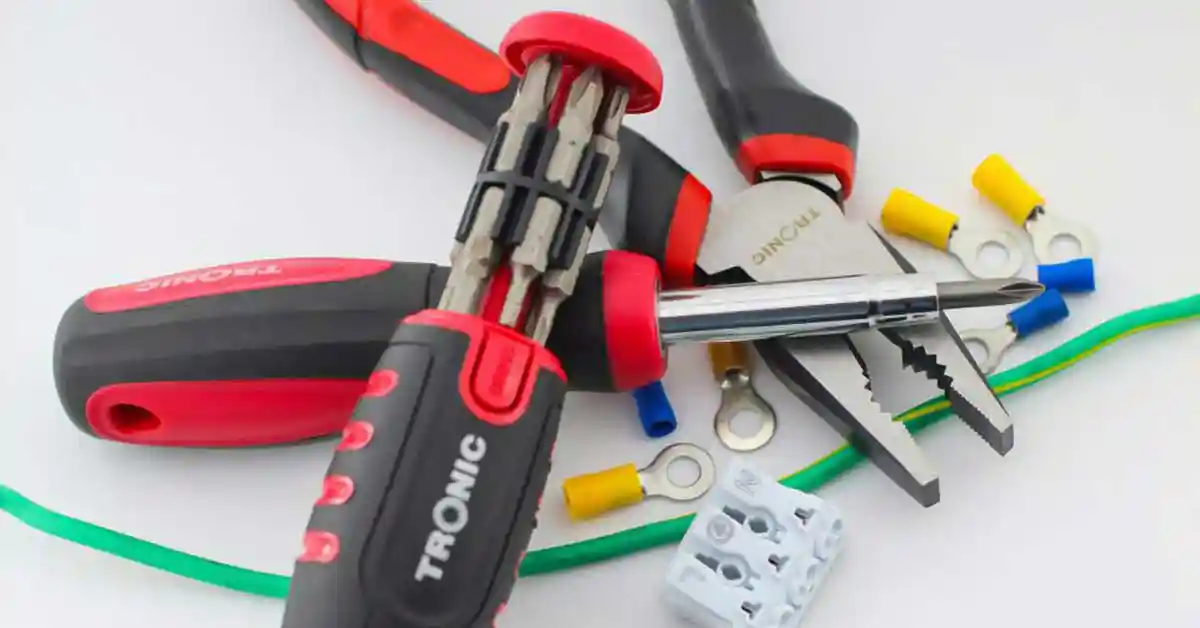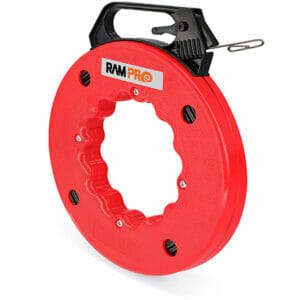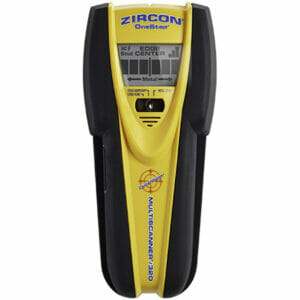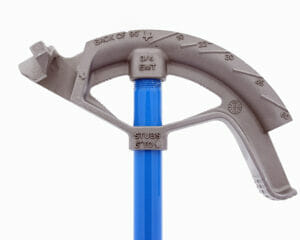
Electricians are essential professionals in our modern world. They play a critical role in installation, maintenance, and repair of electrical systems in residential, commercial, and industrial settings. They work with electrician software and a wide range of the best electrician tools, each designed for a specific purpose. In this article, we will examine the top 25 tools electricians need, discussing their features, functions, and benefits.
Essential Electrician Tools
1. Multimeter
A multimeter is a versatile and indispensable electrician tool. It measures electrical properties such as voltage, current, resistance, and continuity. Digital multimeters are the most popular and offer improved accuracy, ease of use, and durability compared to analog models.
2. Voltage Tester
A voltage tester is used to determine if a circuit is live or not. It is a quick and simple electrician tool that can save a lot of time and avoid the risk of electrical shock. Voltage testers come in different forms, including pen-style testers, screwdrivers, and receptacle testers.
3. Wire Stripper
Wire stripping is a common task in electrical work. A wire stripper is a electrician tool must have and designed specifically for this purpose.
Wire strippers can be manual or automatic. They help electricians remove insulation from a wire quickly and easily. This exposes the conductor for connecting or splicing.
4. Pliers
Pliers are another essential tool for electricians. They come in different types, including needle-nose pliers, side-cutting pliers, and lineman's pliers. Electricians use pliers for a wide range of tasks, such as twisting wires, cutting wire, and gripping small objects.
5. Fish Tape
Fish tape is a flexible steel tape used to thread wires through conduit or other tight spaces. Electricians use fish tape to pull wires between electrical boxes. This tool is helpful for new installations and renovations.

6. Cable Ties
Cable ties, also known as zip ties, are used to secure and organize wires and cables. They come in various lengths and widths and can be made of nylon or other materials. Electricians use cable ties to keep cables neat and tidy, preventing them from becoming tangled or damaged.
7. Electric Drill
A drill is a power tool used to make holes in a variety of materials. The best electrician tools use a variety of drills to install outlets, switch plates, and other electrical devices. Cordless drills are popular for their portability, while corded drills offer more power for heavy-duty tasks. DeWalt and Milwaukee make some popular power tools for electricians, including electrical drills.
8. Hole Saw
A hole saw is a circular cutting tool used to make large holes in materials, such as drywall or wood. Electricians use hole saws to create holes for electrical boxes and other devices. Hole saws come in different sizes and can be used with a drill.
9. Levels
Levels are used to ensure that electrical devices, such as switch plates and outlets, are installed correctly and at the correct height. There are various types of levels, including bubble levels, digital levels, and laser levels.
10. Screwdrivers
Screwdrivers are electricians must have tools. Used for tightening and loosening screws in electrical devices, such as switches, outlets, and panels. Electricians should have a set of screwdrivers in various sizes and styles, including flathead and Phillips head screwdrivers.
11. Hammers
Electricians use hammers for many tasks in electrical work. They help drive nails, remove old devices, and break through walls. The best electrician tools should include a variety of hammers. This includes a framing hammer, claw hammer, and small finishing hammer.
12. Cable Ripper
A cable ripper is a tool that cuts through cable jackets quickly and easily. It does this without harming the wires inside. Cable rippers are great for cutting thicker cables, like coaxial cable. They can save electricians time and effort compared to using a knife or other tools.
Good Electrician Tools
For a small business owner, having new tools for electricians is essential for efficiency and safety. A good multimeter is important for finding electrical problems.
Wire strippers and crimpers help you work with wires quickly and accurately. Insulated screwdrivers and pliers protect you when working with live circuits. A voltage tester helps ensure safety by finding live wires before you start.
Cordless power tools, such as drills and impact drivers, offer mobility and convenience on job sites. Organizing these tools in an electricians van keeps everything accessible, helping to stay efficient on the go.
13. Terminal Crimper
A terminal crimper is a tool used to crimp terminal connectors onto the ends of wires. Crimping creates a strong and dependable connection between the wire and the connector. This makes it a key tool for electrical work and repairs.
14. Stud Finder
A stud finder is a tool used to locate the studs in a wall, which are the wooden supports behind the drywall. Electricians use stud finders to find the location of studs before installing electrical devices, such as switch plates and outlets.

15. Drill Bits
Drill bits are the cutting tools used with a drill. Electricians should have a set of drill bits in various sizes and styles, including spade bits, twist bits, and brad-point bits, to handle different materials and tasks.
16. Reciprocating Saw
A reciprocating saw is a power tool used for demolition and cutting tasks, including cutting through walls, pipes, and other materials. Electricians use reciprocating saws to make holes for electrical boxes and to cut conduit, making it a useful tool for new installations and renovations.
17. Adjustable Wrench
An adjustable wrench, also known as a crescent wrench, is a versatile tool used for tightening and loosening nuts and bolts. Electricians use adjustable wrenches to work with fittings, conduit, and other electrical components.
18. Lineman's Pliers
Lineman's pliers, also known as combination pliers, are a type of plier specifically designed for electrical work. They have a range of functions, including cutting, stripping, and twisting wires, making them an essential tool for electricians.
19. Duct Tape
Duct tape is a strong, durable tape used for a variety of tasks, including securing wires and cables, patching holes, and temporarily repairing electrical devices. Electricians should always have a roll of duct tape in their toolkit for quick fixes and emergency repairs.
20. Insulated Screwdrivers
Insulated screwdrivers are screwdrivers with insulated handles to protect electricians from electrical shock. They are essential for working with live electrical circuits and are required by electrical safety codes.
21. Wire Nuts
Wire nuts are small connectors used to splice together two or more wires. They are an essential tool for electrical installations and repairs, as they provide a secure and reliable connection between the wires.
22. Conduit Bender
A conduit bender is a tool used to bend conduit, which is a tube used to protect and route electrical wires. Electricians use conduit benders to create curves and angles in conduit, making it easier to install and route wires.

23. Drill Press
A drill press is a power tool used to make precise, vertical holes in materials. Electricians use drill presses for tasks such as drilling holes for electrical boxes and cutting conduit, making it a useful tool for new installations and renovations.
24. Sledgehammer
A sledgehammer is a heavy hammer used for demolition and breaking through concrete and other materials. Electricians use sledgehammers to break through walls and floors for new electrical installations and renovations.
25. Heat Shrink Tubing
Heat shrink tubing is a flexible plastic tubing that is used to insulate and protect electrical connections and wires. When you apply heat to the tubing, it shrinks tightly around the connection or wire. This creates a protective barrier against moisture, dust, and other environmental factors.
Electricians use heat shrink tubing for many electrical jobs. This includes splicing wires, connecting terminals, and sealing joints.
Best Tools for Electricians Conclusion
In conclusion, contractors need a variety of the best electrician tools to perform their jobs effectively and safely. The right tools may also determine how much an electrician can make.
From hand tools like pliers and screwdrivers to power tools like drills and saws, having the right tool matters. It can help you finish the job quickly and efficiently.
When starting as an electrician, it's important to buy high-quality tools. These tools should be durable, reliable, and safe. Regularly cleaning and maintaining your new electrical tools will keep them in good working condition.
